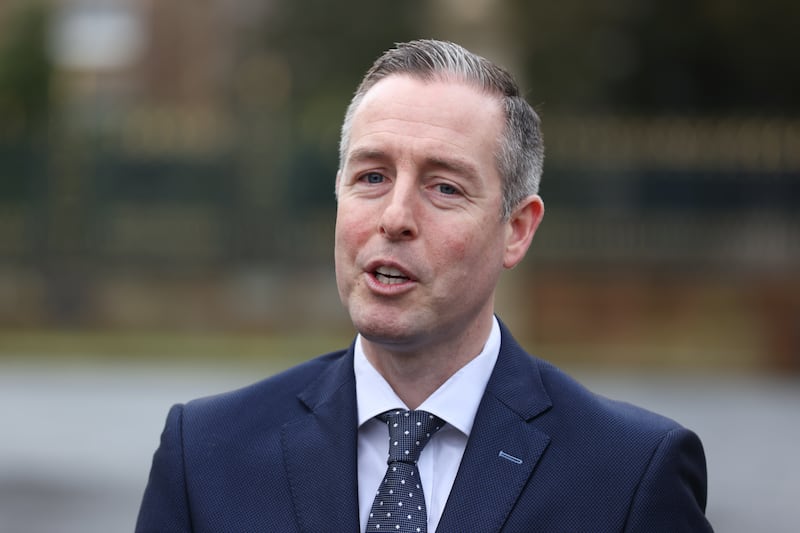The Government’s plan to introduce VAT on private school fees is “deeply misguided”, the Commons has heard, as it was claimed state schools are facing a “capacity crisis” over the influx of pupils leaving the independent sector.
Reform UK’s deputy leader Richard Tice said Buckinghamshire and Bristol did not have enough spare places to absorb children whose parents are opting to withdraw them from private schools, as some institutions are passing on the new tax to fees paid by parents.
From January, the Government plans to remove the VAT exemption and business rates relief for private schools to enable funding for 6,500 new teachers in state schools.
Eton College is among the schools that has said it will raise its fees.
Mr Tice, who represents Boston and Skegness, said: “What is the Secretary of State going to do about the capacity crisis that is rapidly emerging as tens of thousands of children are being forced out of independent schools by this Government’s deeply misguided VAT policy?”
He said 20 schools in Buckinghamshire have “no places whatsoever”, adding: “Bristol City Council is considering buying places from an independent school, to put back in the school, on taxpayers’ expense, a child that has just recently left at the parents’ expense.”
Education Secretary Bridget Phillipson said the public backed the initiative, saying: “We were elected on a manifesto to drive high and rising standards in our state schools, the public back our policy.
“We think it is right that we prioritise investment in our state schools, where the vast majority of our children go to school, and where the vast majority of (Mr Tice)’s constituents go to school, I suggest he spends a bit more time thinking about their interests.”
Currently, independent schools do not charge 20% VAT on their fees because of an exemption for the supply of education.
The Commons heard 1,102 private schools closed between May 11 2010 and July 5 2024.
Education minister Stephen Morgan said the number of pupils in private schools increased in the last school year, and that 13 more private schools opened than closed.
Labour’s Stoke-on-Trent MP Gareth Snell said a private school in his constituency was closing due to “financial viability questions”, and asked what support would be available.
Mr Morgan said: “Private schools are, of course, businesses responsible for their own finances however, the department stands ready to assist.”
Meanwhile Labour MP for York Central, Rachael Maskell asked for a meeting with the department over a private school in her constituency, the Steiner School, which she she could face closure due to the policy.
“(It) enables many children to access school who have anxiety or otherwise wouldn’t be in education,” she said.

Mr Morgan said: “We expect private schools will want to continue to demonstrate wider public benefit through the provision of means tested bursaries, and through partnerships with state funded schools after these changes are made.”
Shadow education secretary Damian Hinds said the Government’s “education tax” on private schools will lead to “bigger class sizes” and “more schools full”.
Mr Hinds said: “What will ministers say next September to parents who, because of their education tax, find bigger class sizes, more schools full and fewer having been able to get their first choice school in Bristol, in Bury, in Salford, in Surrey?”
Mr Morgan replied: “The number of children in private schools has remained steady, despite a 20% real terms increase in average private school fees since 2010 and a rise of 55% since 2003.
“While we cannot predict closures, we will use indicators such as occupancy to monitor this. My department works with local authorities to help them fulfil their duty to secure places.”
Ms Phillipson said that special educational needs and disabilities (Send) pupils who have formal education, health and care plans (EHCPs) will not be impacted by the Government’s plans.

Responding to Tory former minister John Glen, who asked ministers to assess the existing provision in private schools for Send children, she said: “We will make sure that where children have an education, health and care plan, that policy change where it comes to VAT on fees, will not affect those children.”
She added: “Whilst I do recognise the point he makes, and I do believe that parents have a right to choose where their children go to school, the vast majority of parents in our country who send their children to state school are also ambitious and aspirational for their children.”
Ms Phillipson went on to deny that times tables are going to be taken off the national curriculum, following recent reports.
The Telegraph reported that a teaching union source had said times tables should be made optional.
Conservative MP Patrick Spencer (Central Suffolk and North Ipswich) asked the Education Secretary for a “cast-iron” guarantee the Government was not going to remove them.
Ms Phillipson replied: “I’d caution (him) about believing everything he reads in the press. Times tables are an important part of our system, high and rising standards, we will drive that from Government.”








